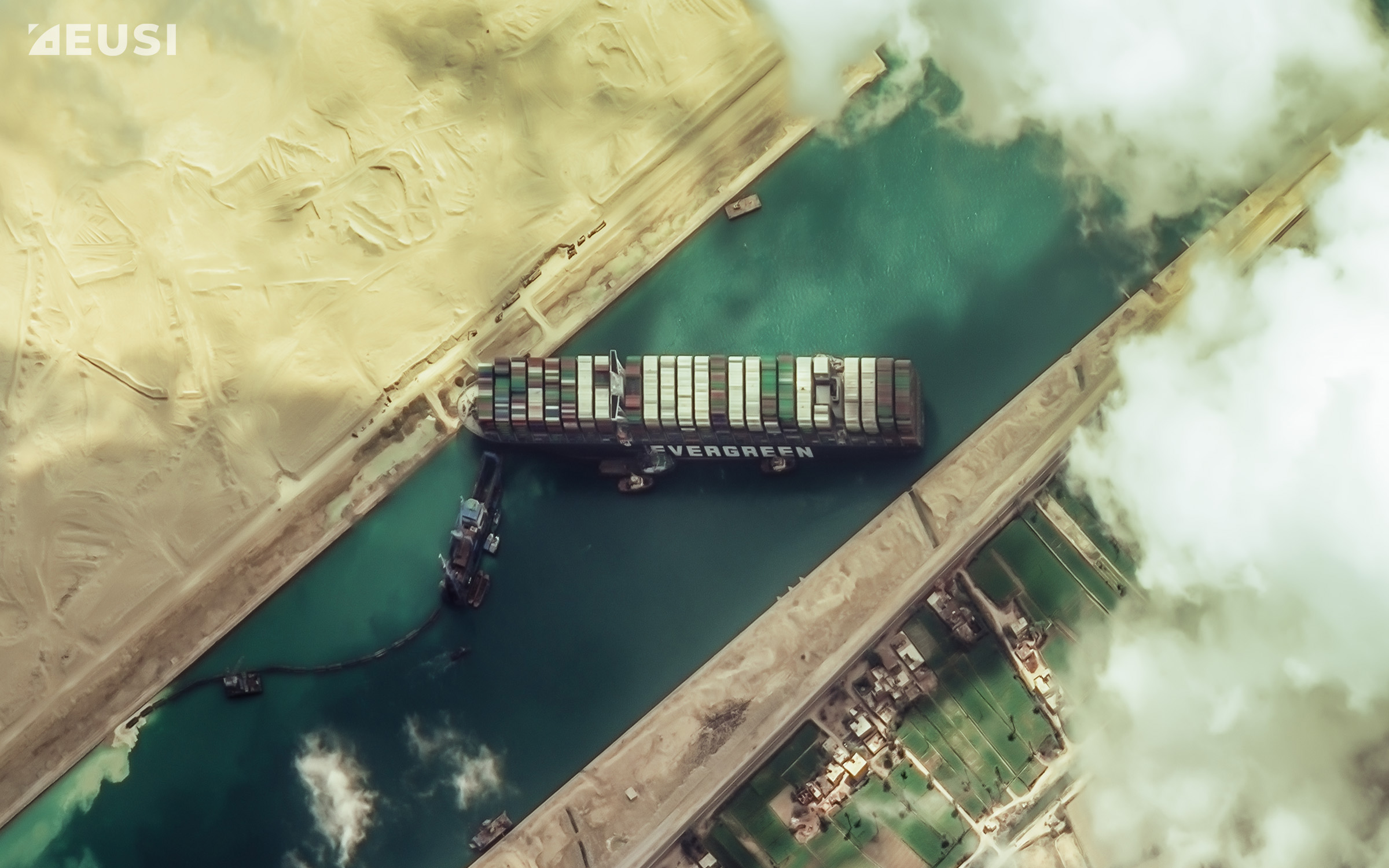Natural disasters, war or traffic jams: events that affect supply chains cannot be avoided. A research team at Fraunhofer IPA has been working on solutions to enable companies to respond to disruptions at an early stage and mitigate the consequences. Artificial intelligence plays a decisive role here.
Stuttgart/Germany, March 19, 2025. It doesn’t take a catastrophe to disrupt or completely interrupt supply chains. On the morning of 23 March 2021, all it took was a combination of strong winds and human error for the container ship ‘Ever Given’ to block the Suez Canal. The internationally important shipping route was blocked for six days after this incident. Backlogs of hundreds of ships formed in both directions of travel. Numerous other ships did not even head for the Suez Canal during this time, but instead chose the much longer route around Africa. Urgently awaited deliveries were delayed by weeks.
Unfortunately, there will always be blocked transport routes, natural disasters, (trade) wars, acts of sabotage, terrorist attacks and other events with far-reaching effects on supply chains. But there are ways to increase the resilience of companies. This includes not only reacting to a crisis when its consequences are already being felt. It would be better to take appropriate countermeasures before an urgently needed raw material is delivered late or not at all. Artificial intelligence (AI) can play a key role in this, as a research team from the Fraunhofer Institute for Manufacturing Engineering and Automation IPA has shown together with numerous partners from science and industry.
Artificial intelligence checks trade routes for disruptions
In the ‘PAIRS’ research project, scientists from Fraunhofer IPA have combined knowledge from the fields of production management and supply chain management with AI approaches to enable knowledge-based analyses of potential problems on relevant supply routes. This has resulted in a functionality that can identify irregularities on shipping routes using freely available satellite images. An additional functionality is able to interpret publicly available messages on transport obstacles.
In this way, the AI models not only find out which sea routes are currently blocked, on which roads traffic is at a standstill or where storms, earthquakes, volcanic eruptions and other natural disasters have occurred. They are also able to estimate the impact of these events and categorise them as ‘less severe’, ‘moderate’ or ‘severe’. Anyone expecting a delivery can therefore use the AI to check the route for disruptions and determine an alternative route if necessary.
Material availability takes centre stage
However, it is not only adaptable transport routes that prevent production downtimes. The research team also addressed the key issue of material availability. This has resulted in a functionality that, similar to the transport routes, interprets publicly available news that could affect the availability of raw materials that are important for a company. The assessment of the criticality of the resource and the severity of the impact in the event of a resource shortage is carried out using several stored calculation methods.
This problem was not only considered from an industrial perspective. Together with the German Federal Agency for Technical Relief, researchers from Fraunhofer IPA have also researched concepts for improving the supply of materials to aid organisations. Approaches developed in the project deal with smart material requirements planning and standardised recording of incoming and outgoing goods in the area of disaster control.
Another approach developed in the project involves scenario-based analyses of the effects of various disruptions on production systems. In addition to missing materials, other problems are also analysed, such as disruptions in production.
AI could also suggest countermeasures in future
‘The search for suitable countermeasures in the event of disruptions of all kinds is currently still carried out by a human,’ says Theresa-Franziska Hinrichsen from Fraunhofer IPA. But it doesn’t have to stop there. ‘In the future, AI could also use the available information to make suggestions on its own as to how the effects of crises can be mitigated or even averted. However, it will still be a human who decides what action to take.’
ImageSource
2025 Maxar Technologies Provided by European Space Imaging, Satellitenbild: Im März 2021 blockierte das Containerschiff »Ever Given« den Suezkanal.


